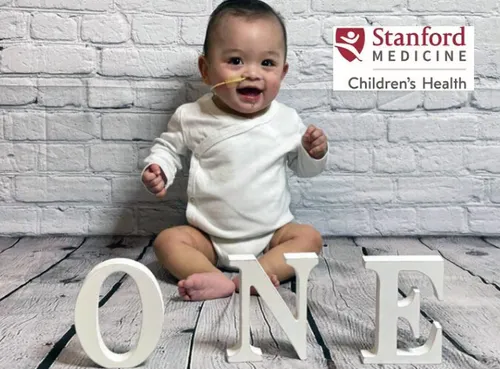When Emily became pregnant with her third child she never expected she’d have a high-risk pregnancy and need to make complex, emotional decisions about her unborn baby. Considering that she had had uncomplicated pregnancies with her first two sons, she anticipated a straightforward time.
But due to cervical insufficiency and bulging membranes, Emily was admitted to the Johnson Center for Pregnancy and Newborn Services at Stanford Medicine Children’s Health at 22 weeks. The upcoming week would be critical.
According to a Stanford Medicine study, 55% of babies born at 23 weeks survive, compared with close to 28% of babies born just one week earlier. Emily and her husband, Christian, then had to make one of the hardest decisions of their lives. Should they have the baby, knowing he might have chronic health problems or not survive?
Thanks to compassionate, in-depth counseling by a multidisciplinary team of maternal-fetal medicine specialists, neonatologists, and family planning experts she and her husband felt confident they were being given all the information needed to make informed choices.
“I told Christian that if the universe takes our baby naturally, then let’s accept it. But I could not give up. We knew there would be complications with our baby, that he could even be disabled, but we accepted that,” Emily says.
Emily went into preterm labor at 23 weeks and one day. Right after birth, baby Alexander was resuscitated, quickly intubated, and placed on oxygen. He was transferred to the Neonatal Intensive Care Unit, where nationally recognized neonatologists could provide advanced care for his prematurity. Following skillful 24/7 NICU care in a quiet, healing atmosphere for 120 days, Alexander went home just days after his original due date.

